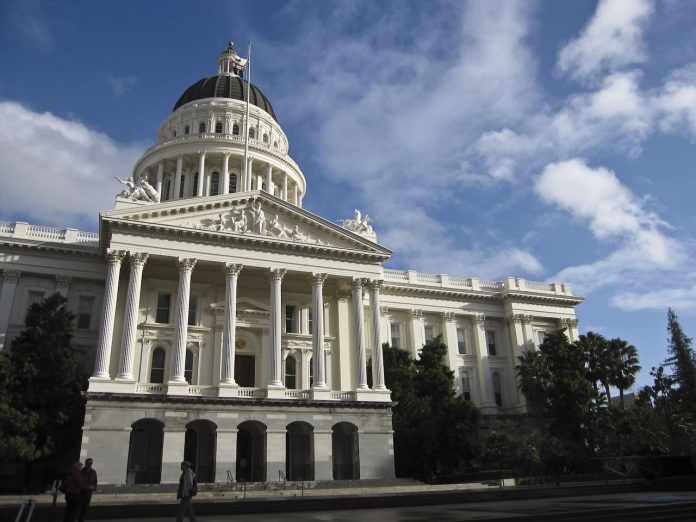
Officials within the Gilroy Unified School District—and even the city—are concerned the state legislature is passing bills that will gradually reduce the amount of control elected officials have over the finances which they were chosen by constituents to manage.
At their last meeting, the GUSD Board of Trustees unanimously endorsed a resolution that called for a repeal of Senate Bill 858—a bill that establishes maximum amounts of reserves school districts can maintain, whether the funds are set aside for routine maintenance or for emergencies.
While most school districts are required to maintain minimum levels of reserves of 3 percent of their overall annual budget to account for economic uncertainties, SB 858 was unprecedented in that it established maximum reserve levels.
“We know we can’t have a 3 percent reserve and be healthy fiscally. They (the state) want to mandate that,” GUSD Superintendent Debbie Flores said, noting that a reserve of 3 percent would only cover 12 days of payroll. “There are some provisions that would allow us to go higher, but it’s the idea of the state saying you can only have this amount in your reserves.”
“They can say ‘no you can’t use your reserve money,’” GUSD Board President Mark Good added. “It doesn’t make any sense. It’s another stupid move by the state government and there’s nothing we can do except say ‘we don’t like it.’”
Flores, who recently attended a conference with superintendents from across the state, said every school district in Santa Clara County has passed the same resolution the GUSD board passed Oct. 16.
Governor Jerry Brown signed SB 858 at the back end of this year’s budget session in June. At a press conference where she announced support of Assembly Bill 146, which would repeal the maximum reserve levels established in SB 858, Senator Jean Fuller, R-Bakersfield, said “last minute deals” like this one result in bad public policy.
Fuller, who served as a superintendent for 17 years, said reserves are essential to cover unexpected costs, from paying for a bus to get children to school or funding repair of fire or flood damage. Rather than counting on the state for funding, Fuller says districts need to have the independence when it comes to controlling what they’re saving for a rainy day.
“It just doesn’t make sense to tell superintendents and school boards they need to plan ahead, to spend wisely, to stay solvent, to make decisions for students and then tie their hands in a way the only thing they have left to do is to come begging on their knees to Sacramento for an emergency loan that we may not have, and some years we don’t,” Fuller said. “Budget reserves are important, not only for planned expenditures and unplanned emergencies, but they are a key factor in preventing school districts from having to come seek emergency loans.”
Currently, the GUSD maintains a reserve of approximately 6.6 percent for planned expenses like textbook adoptions, deferred maintenance and to meet payroll.
“School district governing boards are responsible for maintaining fiscal solvency of the school systems they govern,” reads the resolution passed by the GUSD board.
State-level legislation increases city’s costs, mayor says
The city of Gilroy has been fighting its own series of quiet battles against state legislation that increases the local cost of certain projects. The price tag for the recently opened downtown paseo at 7453 Monterey Street, completed at a cost of $1.1 million, grew in part because of a bill passed at the state level that requires cities pay a “prevailing wage” if city money funds a capital improvement project, according to Mayor Don Gage. Prevailing wage laws in California ensure the ability to get a public works contract isn’t based on paying lower wages than a competitor and all bidders must use the same wage rates during bidding, according to the Department of Industrial Relations.
“They (the state) keep taking away our rights so the unions get the jobs,” Gage said, adding that a local contractor was set to pave the entire paseo for $7,000, but the cost more than doubled because the city purchased the building—and therefore, a prevailing wage had to be paid.
Moving forward, Gage said he’s more inclined to solicit contributions from generous members of the community in order to keep control over the costs of a project, rather than put city money into something and watch the costs balloon simply because of the prevailing wage requirement.
“The schools are really worse off, because a lot of the governors—especially Gray Davis—said ‘you can have money, but this is what you have to do whether you need it or not,’” Gage added. “They had to use it otherwise they’d lose it, but they didn’t get what they needed in order to fix what they wanted to fix. That’s why you elect school boards, city councils. They are representatives of the people and these folks (the state) come along and they take our money to balance their budget. If we didn’t have the state or the feds doing that to us, we wouldn’t have a problem. I’m sorry to say that, but that’s the case.”
Another bill floating in Sacramento could bring redevelopment agencies back from extinction—but only cities that had them in the first place would be eligible to participate, according to Gage.
“Gilroy didn’t have one, and we’re not going to get one,” he added.













